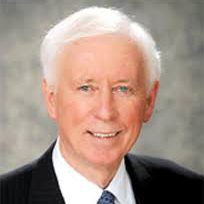Physician Autonomy Essential to Patient Care
(25.03.13) Physicians attending the annual conference of the European Forum of Medical Associations (EFMA) expressed their concerns about the progressive loss of physician autonomy that is occurring in countries around the world. The discussions made it clear that substantial physician clinical autonomy is essential to providing quality care for patients. In other words physicians should be free to make decisions about the care of the patient that are in the best interests of the patient without unduly restrictive laws, regulations and administrative requirements.
Professional autonomy is meant to pertain to patient care. It does not mean that physicians are free to do whatever they please. Professional autonomy is granted to Physicians by society. There is a corresponding responsibility on the part of physicians to take into account the structure, resources and culture of the society of which they are a part.
In 2000 the Warsaw Declaration on Physicians’ Autonomy was adopted by the EFMA and the World Heath Organization (WHO). Based on the discussions at the conference here in Riga, Latvia, there was agreement that the Declaration still captures the essential elements of physician autonomy. The attendees voted to reaffirm the declaration. The document will be sent to WHO with a request that it concur in reaffirmation.
The following is the Warsaw Declaration on Physicians’ Autonomy.
Warsaw, Poland, 17–19 March 2000: English
Declaration on Physicians’ Autonomy (Warsaw Declaration)
The European Forum of Medical Associations and WHO, meeting in Warsaw, Poland, from 17 to 19 March 2000,
- Conscious of the Statement made by the European Forum of Medical Associations and WHO in Tel Aviv, Israel, on 9 March 1999;
- Reaffirming that the prime duty of physicians is the care1 of their patients;
- Recognizing that substantial appropriate autonomy is essential if physicians are to fulfill their professional responsibilities to their patients and comply with the ethical code by which the medical profession is governed;
- Accepting that the corresponding duty on the part of the profession requires the guarantee of accountable, efficient and transparent self-regulation by the medical profession;
- Stressing that the individual physician and the profession as a whole will take account of the structure, resources and culture of the society of which they are part
- Reaffirming that as a profession physicians, as part of their self-regulatory process, accept the responsibility for determining standards of quality of care provided by individual physicians to their patients
- Accepting that professional autonomy is granted to physicians by society; that society demands a corresponding responsibility on the part of the medical profession, and that this forms the basis of the confidence of society in physicians
- Noting the Statements of the World Medical Association on Professional Autonomy and Self-Regulation (Madrid 1987) and on the Rights of the Patient (Lisbon 1981 and Bali 1995), and the Statement by the Standing Committee of European Doctors on Professional Autonomy and Responsibility (1999)
- Considering that patient care and physicians’ autonomy is at risk whenever professional freedom is restricted in the course of cost-containment or rationing for economic reasons
- Considers it essential that legislation relating to the practice of medicine by fully licensed physicians should take into account the following considerations and principles relevant to their role in society
- Physicians need to have professional autonomy to make clinical decisions on the care of patients
- The confidence which society has in physicians merits the granting of appropriate professional autonomy
- In the best interests of the patient, physicians have a duty to safeguard the confidentiality of their patients when exercising their profession, and their right to carry out this duty should be incorporated in legislation
- All physicians should have the right to independent practice2
- Physicians should not be penalized, financially or otherwise, when acting to safeguard on behalf of sick and vulnerable patients equal access to effective treatment and the availability of adequate resources to care for each patient
- Legislative provisions relating to the autonomy of physicians must not conflict with the provisions of the International Code of Medical Ethics (London 1949, Sydney 1968, Venice 1988, Stockholm 1994)
1 In the context of this document the word “care” includes prevention, diagnosis, treatment and rehabilitation.
2 For constitutional reasons, WHO cannot take a position on this point.

